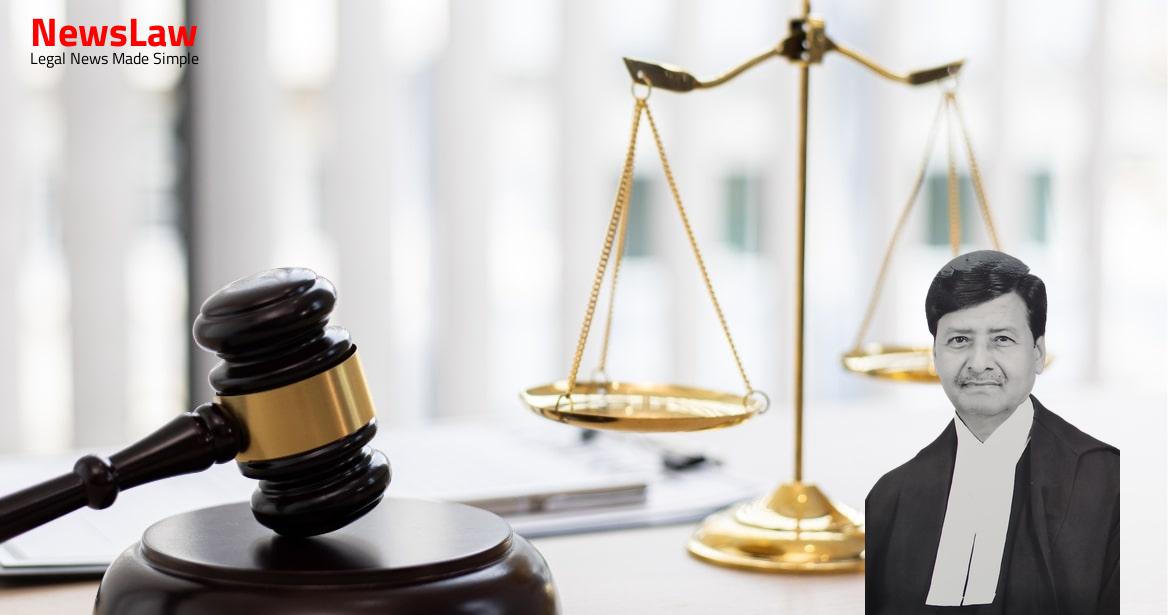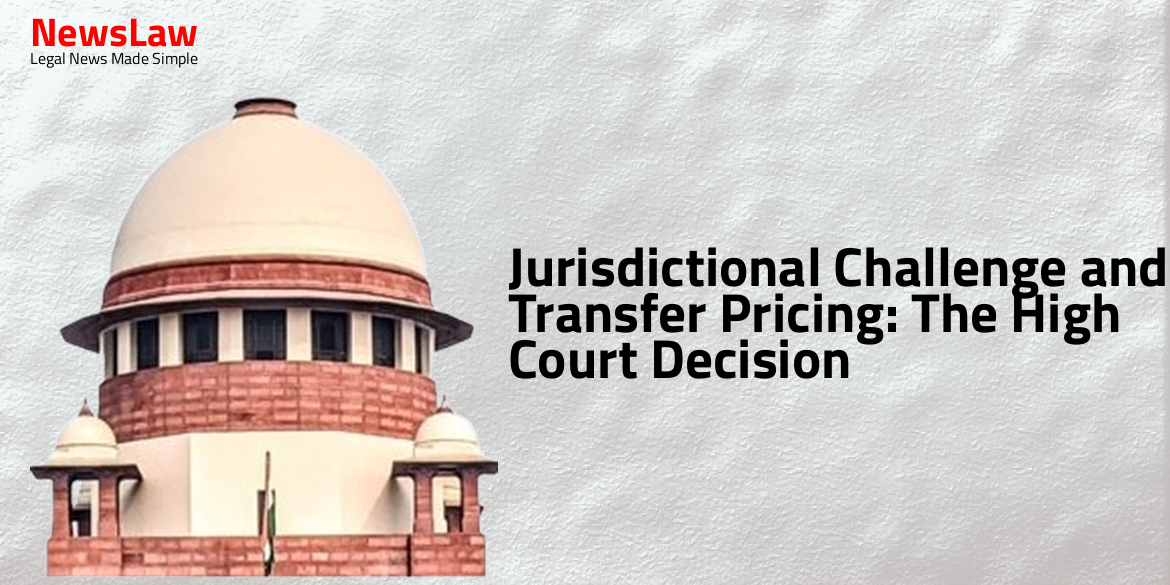In the case of Bank v. Insurer regarding the exclusion of STFI perils in the insurance cover, the Supreme Court of India delivered a significant judgment. The dispute between the bank and the insurer over the coverage terms has been thoroughly analyzed. Let’s delve into the details of this crucial legal battle.
Facts
- The bank stated that the primary duty of obtaining insurance for the hypothecated goods was on the borrowers.
- The first respondent filled a proposal form on 3 August 2005 and handed over a cheque for cover extending to STFI perils.
- Insurance cover details for 2005-06 and 2006-07 were provided, showing a change in location with different sum insured amounts.
- The claim under the insurance cover for hypothecated goods was repudiated by the insurer.
- The insurer accepted part of the claim under one policy cover but repudiated the entire claim under a different policy cover.
- The bank acted as a corporate agent for the insurer and obtained policies for all its borrowers.
- Correspondence between the bank and insurer raised questions about exclusion of STFI perils in a specific policy cover.
- The insurance policy covered specific locations of the borrower where goods were stored, with perils including storm, flood, and more.
- A consumer complaint was filed alleging unfair trade practice by the insurer in repudiating the claim under a specific policy cover.
- The defence of the insurer included the exclusion of STFI perils in the policy cover for a certain period.
- The National Commission held that accepting the policy without the STFI cover estopped both the bank and the borrower from questioning its terms.
- No rule or regulation mandating the insurer to accept the entire proposal was brought to the National Commission’s notice.
- Deletion of STFI perils from a policy was permissible when a new policy was issued.
- Despite the argument that the insurer could not have excluded STFI cover during renewal, the National Commission found that the exclusion was permissible according to regulations.
- The appellants did not take up the issue of STFI peril exclusion with the insurer or the bank.
- Reliance on general rules and regulations by the Tariff Advisory Committee showed that excluding STFI perils at the inception of the policy was permissible.
- A new policy was issued for 2004-05 with a new location address, allowing the insurance company to exclude the STFI cover.
- The National Commission overturned the State Commission’s order, holding the bank not liable for the exclusion of STFI perils from the policy.
- The bank had given a copy of the insurance policy to the borrowers, and the refunded premium amount was credited to their account.
- The bank, however, was held liable for depositing the cheque for the premium refund without proper enquiries from the insurer.
Also Read: DAMEPL vs. DMRC: Curative Petition and Arbitral Award Restoration
Arguments
- Appellants argued that the policy issued in 2005-06 was a renewal and the risk commencement date discrepancy was due to the bank’s actions.
- Appellants were not made aware of the proposal by the bank, acting as the corporate agent of the insurer.
- Cheque payment was encashed by the insurer, but a partial amount was later returned without proper intimation of exclusion of STFI perils.
- Appellants contended that policies for 2005-06 and 2006-07 were renewals and therefore the insurer could not exclude STFI perils based on the prior policies.
- Biman Krishna Bose v United India Insurance Co Ltd judgment was cited in support of the renewal argument.
- Duty of obtaining insurance cover was primarily on the appellants as borrowers under the hypothecation agreement.
- Insurer did not inform about the exclusion of STFI perils during policy renewals in 2005-06 or 2006-07.
- Bank denied entering an incorrect or different address in the proposal form.
- Bank stated that a copy of the policy had been provided to the insured.
- Counsel for the appellants referred to specific clauses of an IRDA notification in support of their argument.
- Proposal form was not submitted to the bank or the appellants within the specified time frame.
- Mr. Bhat argued that the insurer’s decision to exclude STFI perils from the insurance cover was a commercial choice.
- The insurer refunded a portion of the premium that covered STFI perils, indicating the exclusion to the appellants.
- The appellants received the policy from the bank, so they cannot claim ignorance of the exclusion or the premium payment.
- The bank deposited the returned premium amount of Rs 992 into the appellants’ account, solidifying their knowledge of the STFI perils exclusion.
- Mr. K K Bhat, representing the third respondent, emphasized that the insurance cover of Rs 60 lakhs specifically did not include STFI perils.
Also Read: Environmental Violations Case: TNPCB v. Copper Slag Unit
Analysis
- The insurer cannot be held liable as no risk can be assumed without receiving the premium in advance.
- The contract of insurance must be interpreted based on the agreement between the parties.
- Section 64(VB) of the Insurance Act 1938 is relevant in this case.
- The insurance policy issued for 1 August 2005 to 31 July 2006 excluded STFI perils.
- The parties cannot disavow knowledge of the exclusion of STFI perils in the insurance cover for the relevant period.
- The change in premises led to the issuance of a new policy with exclusion of STFI perils.
- The terms and conditions of the new policy governed the contract between the parties.
- The insurer’s decision to exclude STFI perils was a commercial one.
- The Court cannot rewrite or create a new contract between the parties
- The interpretative process of the Court should not involve reconstructing the terms of the contract
- Judicial interpretation should stick to the terms of the existing contract
- The role of the Court is to interpret the contract, not rewrite it
- The appellants rely on the decision of the Court in Biman Krishna Bose v United India Insurance Co Ltd.
- The case involved a mediclaim policy where insurer’s refusal to renew the policy was deemed arbitrary.
- The appellants could have approached the insurer or another insurance company for a policy covering STFI perils.
- The appeal is dismissed with no order as to costs.
- The appellants were aware of the exclusion of STFI perils as they had received a copy of the policy and a premium refund.
- Since the insured did not protest to the insurer in 2005-06 or 2006-07, they cannot claim they had no knowledge of the exclusion.
Also Read: High Court Upholds Decision on Minimum Eligibility Cut-Off in Judicial Promotions Case
Case Title: SHREE AMBICA MEDICAL STORES Vs. THE SURAT PEOPLES CO-OPERATIVE BANK LTD (2020 INSC 98)
Case Number: C.A. No.-000562-000562 / 2020



